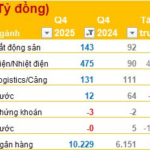Reasons for Credit Card Information Leakage
Credit card information leakage is an issue that causes serious consequences. One of the main reasons for credit card information leakage is the carelessness of card users. Sharing credit card information, using weak passwords, not thoroughly checking before making online transactions, trusting unreliable applications… are careless actions that can lead to credit card information leakage.
In addition, the attack of hackers is also a reason for the leakage of credit card information. They attempt to infiltrate the systems of organizations and businesses in order to steal customer information and access payment accounts.
Therefore, to avoid the risk of credit card information leakage, customers need to be cautious in their usage.

(Illustrative image)
What to Do in Case of Credit Card Information Leakage?
In case of detecting credit card information leakage, users need to take temporary measures to protect their accounts.
Article 19 of Circular No. 19/2016/TT-NHNN provides specific guidance to customers and card issuers as follows:
Firstly, when the card is lost or the information is leaked, the cardholder should immediately notify the card issuer. Then, the card issuer will promptly block the card and notify the cardholder. Users can block their accounts through the following methods:
Card blocking via Internet Banking/Mobile Banking
Some banks have integrated the card blocking function into their online banking applications. To block the card, users need to ensure that their phones have the banking application installed and their accounts registered. Then follow the instructions to access the account and perform the card blocking operation.
Card blocking via bank hotline
Banks all have hotlines for customers to report incidents, including card loss and card blocking.
When calling the bank, the staff will request one or more personal information such as name, ID card. After verification, the bank will address the user’s request.
Direct card blocking at the transaction counter
If near a bank branch, users can go directly to the transaction counter to request card blocking. When going to the bank, users need to provide account information and bring ID card for bank staff to check.
To minimize the risk of credit card information leakage, users should pay attention to using broken stickers to cover the CVV code (which will be used in online transactions as an additional security layer), not using public networks for transactions, not lending cards to others, thoroughly checking POS machines or ATMs, registering for OTP service…














